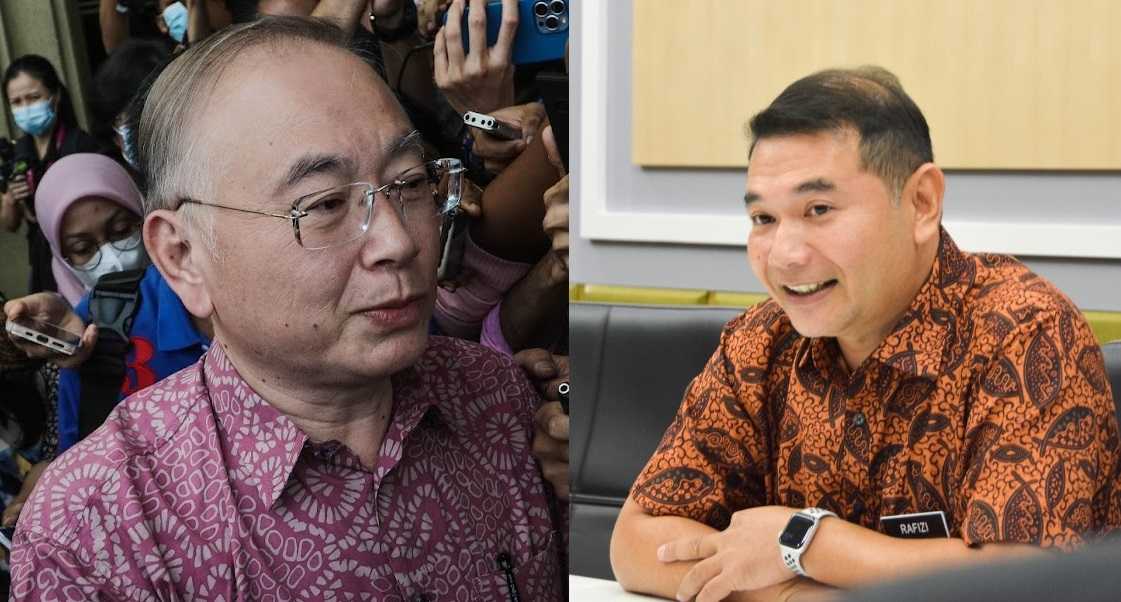With the registration deadline set to expire in less than 48 hours, the government’s Central Database Hub (PADU) continues to face a trust deficit. This also applies to the ruling politicians themselves, who are still not convinced by the repeated assurances that their personal data is secure.
As of March 28, Economy Minister Rafizi Ramli – the man at the centre of the new system, which the government claims will help with the distribution of targeted subsidies – claims that almost 9.3 million people have already registered with PADU.
Rafizi has publicly refused to acknowledge criticism of PADU’s weakness from various parties, including the GPS-led Sarawak government, which delayed registration due to concerns over the security of personal data.
The Sarawak leadership is not alone in expressing its doubts about PADU.
MalaysiaNow has spoken to many MPs and politicians from the ruling bloc who have refused to register, despite the government’s aim for PADU to collect data from all strata of Malaysians to facilitate future planning of government support and subsidies.
Among them is MCA chairman Wee Ka Siong, who said he was not convinced by the system.
“I have not registered at all, why should an MP register when his salary is between RM15,000 and RM16,000?” the Ayer Hitam MP, told MalaysiaNow.
High income earners players get subsidies?
Wee said he was puzzled by Rafizi’s ministry’s statement that every citizen should be registered regardless of their financial status.
The ministry had said that the T20 group of top earners can also be eligible for subsidies as long as they are registered.

“If a (T20) family has eight children, their net household income can fall in the M40 group and they also qualify to receive targeted subsidies,” the ministry said on X recently.
“There is no MP with eight children who qualifies to receive subsidies, that’s stupid! And then they tell us to sign up for PADU. For what?” said Wee.
He questioned why JUSA officials, the top tier of the civil service, must also register with PADU.
“Can you give aid to someone with a salary of more than RM100,000? People will look at that with suspicion,” he said.
Wee said if PADU could indeed be trusted, why had Sarawak Chief Minister Abang Johari Openg postponed the registration in the state?
The Sarawak government explained that the freezing of PADU was to protect citizens’ personal information in line with Article 5(1) of the Federal Constitution.
Wee said the government had failed to address privacy concerns.
He said if the government claimed it already had data on people, there should be no need for PADU.
“If you already have information, why do you want to collect the same information from us again? What is it really good for? What else do you want to collect if you say you already have our data?”
Wee said that by saying that the T20 group could also be eligible for subsidies, public confidence was further undermined.
On March 26, Rafizi again defended PADU, stating that it had security measures in place to prevent any form of attack, in addition to strict data protection controls.
However, Perikatan Nasional MP Wan Ahmad Fayhsal Wan Ahmad Kamal said the minister had still failed to dispel the public’s doubts.
“Rafizi should not think that the state government is stupid,” Fayhsal said of Sarawak’s decision. “They also have their own IT consultants, so what Rafizi has stated is certainly not convincing, he has not properly scrutinised the PADU system and should not have embarked on it at this time,” the Machang MP added to MalaysiaNow.
He said the government seemed to be in a hurry to rationalise subsidies but had been reckless in achieving this goal.
Fayhsal said Rafizi’s involvement in Invoke, a PKR-linked company that manages data, played a role in the trust deficit he is currently facing.
In the past, Invoke, which conducts polls to assess voters, has been criticised for its inaccurate results and predictions ahead of the general election.
In the 2018 general election, for example, Rafizi predicted that PAS would not win a single seat, which turned out to be wrong after the party’s huge success.

